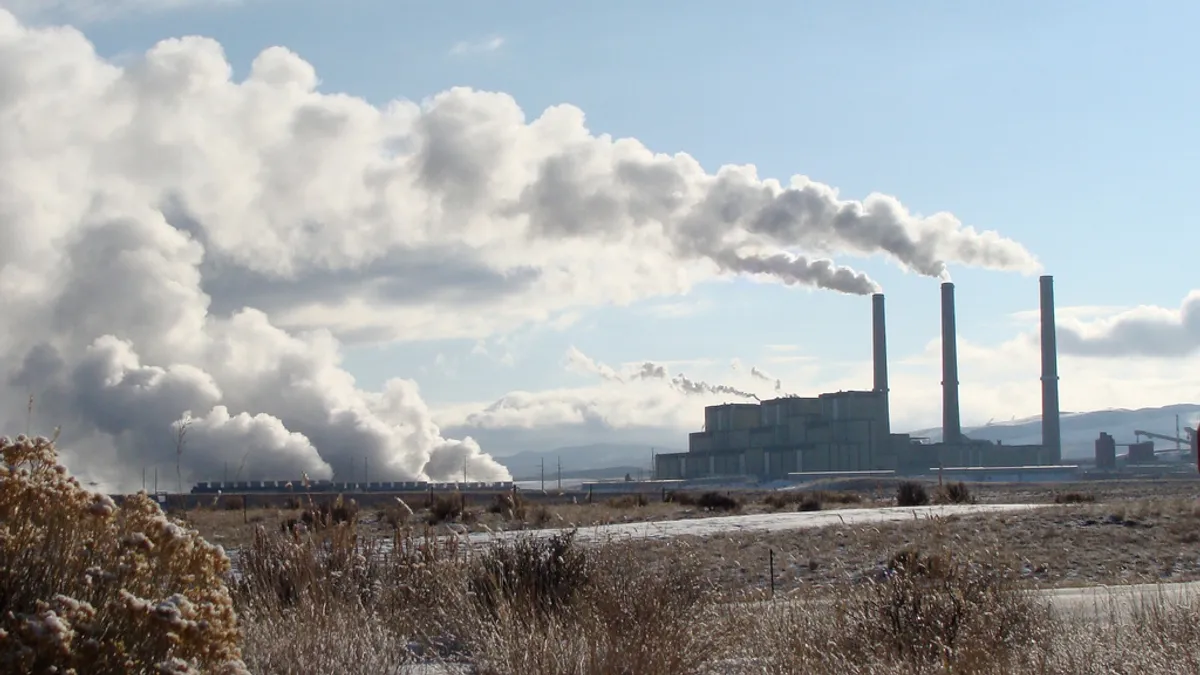Dive Brief:
- More than two dozen states have banded together in a lawsuit challenging the Clean Power Plan, including the state of Colorado – despite objections from Democratic Gov. John Hickenlooper, the Denver Business Journal reports.
- Colorado Attorney General Cynthia Coffman (R) last week signed on to the multi-state lawsuit challenging the regulatory package's "unprecedented attack on coal," as well as the federal government's authority to enforce the rules.
- Colorado law allows the state's attorney general to file lawsuits without the approval of the governor, leading to the unusual standoff between the state's chief executive and its top law enforcement officer.
Dive Insight:
Colorado signed on last week to a multi-state lawsuit challenging the Obama administration's Clean Power Plan, but Gov. Hickenlooper is apparently not backing the lawsuit.
According to Denver Business Journal, Hickenlooper said via an emailed statement saying that "we do not support this lawsuit."
“Clean air and protecting public health should be everyone’s top priority. Colorado’s interest is best served by an open, inclusive process to implement the Clean Power Plan," Hickenlooper wrote. “This lawsuit will create uncertainty for the state and undermine stakeholders’ ability to plan for and invest in cost-effective compliance strategies, something that the Attorney General has been advising the state on."
Colorado is apparently well-positioned to meet the greenhouse has limits, experts say, pointing to billions of dollars invested in renewable energy in recent years. Hickenlooper says he anticipates little to no extra cost to the state's residents from compliance, but Colorado law allows the attorney general to file lawsuits directly on behalf of citizens without approval from the governor.
The suit, headed by West Virginia Attorney General Patrick Morrisey, challenges the Obama administration's ability to enact the far-reaching regulations, which seek to reduce greenhouse gas emissions 32% nationwide by 2030.
“EPA claims to have sweeping power to enact such regulations based on a rarely-used provision of the Clean Air Act but such legal authority simply does not exist,” Morrisey said in a statement.















